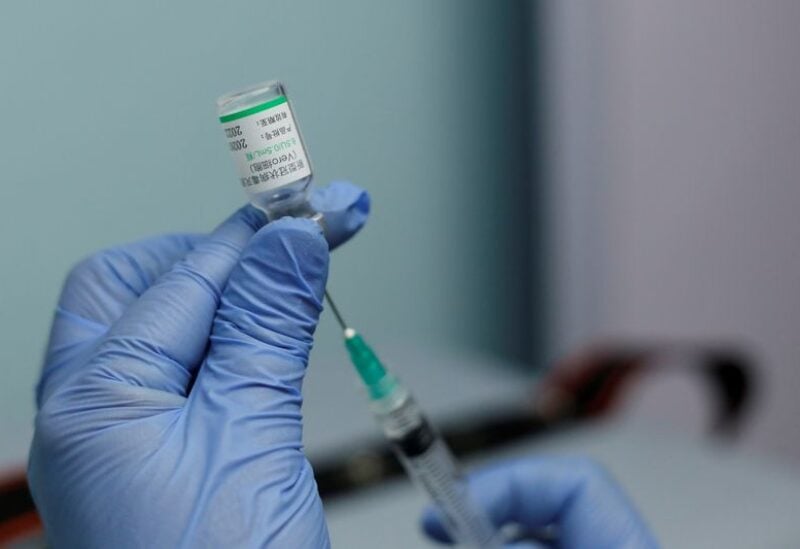
FILE PHOTO: A nurse prepares a dose of China's Sinopharm coronavirus disease (COVID-19) vaccine at a health center in Caracas, Venezuela March 7, 2021.
Two inactivated vaccines developed by Chinese pharmaceutical giant Sinopharm have been proven safe and effective against COVID-19 in Phase III human trials, according to a study published Wednesday in the Journal of the American Medical Association.
The randomized, double-blind, and placebo-controlled trials were designed by the Wuhan Institute of Biological Products Co., Ltd. and the Beijing Institute of Biological Products Co., Ltd., both of which belong to China National Biotec Group (CNBG), affiliated with Sinopharm.
The efficacy of a vaccine is determined by looking at how many people contract COVID-19 after being vaccinated, compared with how many are affected when given a placebo injection.
By this criterion, the two inactivated Chinese vaccines showed efficacy rates of 72.8 percent and 78.1 percent, respectively, against symptomatic COVID-19 cases, with rare serious adverse effects reported, according to an interim analysis of the ongoing trials.
It is the world’s first published Phase III study results of inactivated COVID-19 vaccines, the CNBG said in a statement on Thursday.
Wang Guiqiang, director of the Infectious Diseases Department at Peking University First Hospital in Beijing, explained both how the CNBG trial was conducted and its significance.
“A Phase III clinical trial of COVID-19 vaccine is a random comparative study conducted in epidemic areas, in which one group of participants are given genuine vaccines, while the other are given placebo shots. All participants then proceed with their normal lives and work in society. Finally, we analyze the number of cases in each group and use them to calculate the protection rate. The official release of the results of CNBG’s Phase III clinical trial presents a comprehensive picture of the design, results, and conclusions of the entire Phase III clinical trial,” said Wang.
According to the CNBG study, more than 40,000 people in the United Arab Emirates and Bahrain aged 18 and above without a known history of COVID-19 participated in the trials. Study enrollment began on July 16, 2020 and data sets used in the study were locked on December 31, 2020.
The vaccination procedure required two intramuscular injections with an interval of 21 days. Fourteen days after inoculation, all vaccine receivers produced high titers of antibodies, and the seroconversion rate of neutralizing antibodies was higher than 99 percent in both vaccine groups, indicating strong immune responses induced by the two vaccines, the study said.
According to Wang, seroconversion, or the development of antibodies in the blood serum as a result of infection or immunization, is only a prelude for vaccine protection.
“Seroconversion of neutralizing antibodies is a basic condition of protection, a prerequisite. But whether the vaccine can ultimately offer protection depends on the amount of virus and other factors. The value of vaccines actually has three levels. The first is to prevent infection, the second is to prevent morbidity, and the third is to prevent severe illness and death. All vaccine research around the world is judged by the point of prevention. The same is true of CNBG. That is, you may get infected [after being vaccinated], but the vaccine protects you from getting sick and showing symptoms. This is how the numbers 78 percent and 72 percent came about,” he said.
The trials in the CNBG study are still ongoing overseas, and long-term efficacy of the two Chinese vaccines for COVID-19 prevention needs to be further evaluated, the study noted.
China has several self-developed COVID-19 vaccines undergoing advance-stage clinical trials. The study reported in the Journal of the American Medical Association is the first to publish the Phase III trial results of such vaccines.